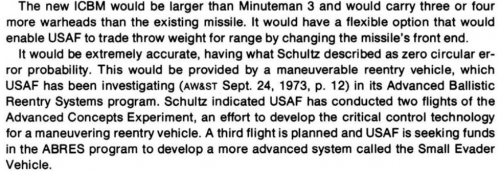- Joined
- 21 April 2009
- Messages
- 13,745
- Reaction score
- 7,666
House panel quashes immediate funding for mobile ballistic missile option
April 28, 2016
An amendment
included in the House Armed Services Committee's version of the fiscal year
2017 defense policy bill prohibits funds for a mobile variant of the Ground
Based Strategic Deterrent System.
Offered by Rep.
Rick Larsen (D-WA), the language blocks funds in FY-17 and FY-18 to retain or
develop a mobile option for GBSD, the Minuteman III's replacement.
The amendment comes
after Air Force and industry officials revealed plans to explore a mobile
option for the intercontinental ballistic missile replacement. As part of its
technology maturation and risk reduction draft request for proposals, the Air
Force asked industry to explore a mobile basing option for the GBSD, Inside
the Air Force previously reported. The design features and total cost to
support the modular GBSD will be evaluated during the TMRR phase, Air Force
spokesman Maj. Rob Leese told ITAF March 4.
In an April 11
interview with ITAF, service officials emphasized that the mobile basing
option might not appear on GBSD until the 2050 time frame. The draft RFP asks
industry to look at an open architecture system for GBSD, so that the initial
design gives the Air Force the ability to adjust to any new requirements in the
future, including a mobile basing variant, Eric Single, chief of Air Force
Global Strike Division acquisition, told ITAF. Industry will deliver a
preliminary design during GBSD's technology maturation and risk-reduction
phase, which is not tied directly to the mobile option, but to any capability
upgrades the service must make over the weapon's life cycle, he said.
Separately, Larsen
offered another amendment regarding GBSD which asks for "the incremental cost
associated with missile designs which include the flexibility to develop mobile
variants, as well as the strategic doctrine which will inform an eventual decision
on whether to included mobility requirements in a future procurement."
The amendment would
expand language submitted in the House Armed Services strategic forces
subcommittee's mark of the bill, which demands a more detailed acquisition
strategy, contract structure and cost estimate for GBSD. While the mark asked
for more information on the missile system's recapitalization, including
opportunities for commonality between GBSD and the Navy's Trident II D5
sub-launched ballistic missile, the subcommittee omitted language on the mobile
missile option. -- Leigh Giangreco
April 28, 2016
An amendment
included in the House Armed Services Committee's version of the fiscal year
2017 defense policy bill prohibits funds for a mobile variant of the Ground
Based Strategic Deterrent System.
Offered by Rep.
Rick Larsen (D-WA), the language blocks funds in FY-17 and FY-18 to retain or
develop a mobile option for GBSD, the Minuteman III's replacement.
The amendment comes
after Air Force and industry officials revealed plans to explore a mobile
option for the intercontinental ballistic missile replacement. As part of its
technology maturation and risk reduction draft request for proposals, the Air
Force asked industry to explore a mobile basing option for the GBSD, Inside
the Air Force previously reported. The design features and total cost to
support the modular GBSD will be evaluated during the TMRR phase, Air Force
spokesman Maj. Rob Leese told ITAF March 4.
In an April 11
interview with ITAF, service officials emphasized that the mobile basing
option might not appear on GBSD until the 2050 time frame. The draft RFP asks
industry to look at an open architecture system for GBSD, so that the initial
design gives the Air Force the ability to adjust to any new requirements in the
future, including a mobile basing variant, Eric Single, chief of Air Force
Global Strike Division acquisition, told ITAF. Industry will deliver a
preliminary design during GBSD's technology maturation and risk-reduction
phase, which is not tied directly to the mobile option, but to any capability
upgrades the service must make over the weapon's life cycle, he said.
Separately, Larsen
offered another amendment regarding GBSD which asks for "the incremental cost
associated with missile designs which include the flexibility to develop mobile
variants, as well as the strategic doctrine which will inform an eventual decision
on whether to included mobility requirements in a future procurement."
The amendment would
expand language submitted in the House Armed Services strategic forces
subcommittee's mark of the bill, which demands a more detailed acquisition
strategy, contract structure and cost estimate for GBSD. While the mark asked
for more information on the missile system's recapitalization, including
opportunities for commonality between GBSD and the Navy's Trident II D5
sub-launched ballistic missile, the subcommittee omitted language on the mobile
missile option. -- Leigh Giangreco

